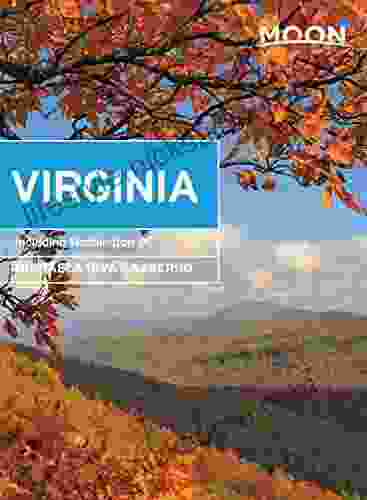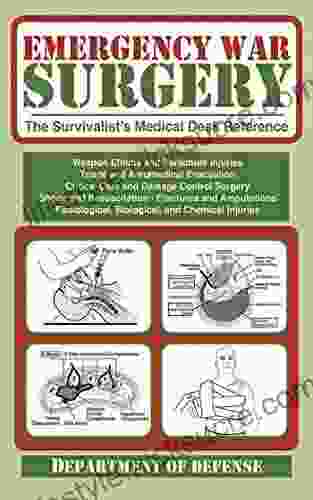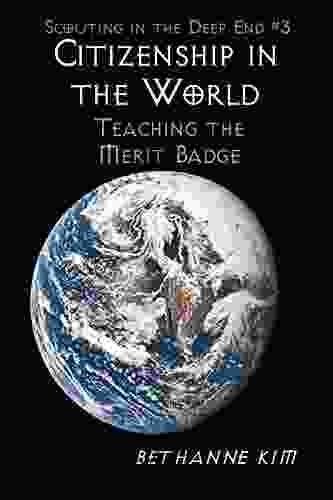Research and Technical Writing for Science and Engineering: A Comprehensive Guide

Research and technical writing play a pivotal role in the dissemination of knowledge and advancement of scientific and engineering disciplines. This comprehensive guide delves into the nuances of these specialized forms of writing, equipping readers with the knowledge and skills necessary to effectively communicate complex technical information. Whether you're a researcher pursuing a PhD, an engineer crafting technical reports, or an aspiring writer in the field, this guide will serve as an invaluable resource.
5 out of 5
| Language | : | English |
| File size | : | 11146 KB |
| Screen Reader | : | Supported |
| Print length | : | 109 pages |
Understanding Research Writing
Research writing involves the systematic presentation of original research findings in a clear and concise manner. It typically comprises the following sections:
- Abstract: A brief summary of the research and its key findings.
- : Background information on the topic, research question, and methodology.
- Methods: A detailed description of the experimental design and procedures.
- Results: Presentation of the data collected and analysis performed.
- Discussion: Interpretation of the results, including their implications and limitations.
- : A concise summary of the research findings and their significance.
Effective research writing requires a deep understanding of the topic, meticulous attention to detail, and a clear writing style. It should adhere to the conventions of scientific writing, including proper citation and referencing.
The Art of Technical Writing
Technical writing conveys complex technical information to a specific audience. It encompasses a wide range of documents, including:
- Technical reports: Formal documents that present the results of research or engineering projects.
- User manuals: Instructions for operating and maintaining equipment or software.
- White papers: In-depth technical analyses of a particular topic or technology.
- Standard operating procedures (SOPs): Detailed guidelines for performing specific tasks.
Effective technical writing requires a thorough understanding of the subject matter, the ability to distill complex information, and a talent for clear and concise communication. It often employs visual aids, such as graphs, tables, and diagrams, to enhance comprehension.
Writing for Different Audiences
The key to effective research and technical writing lies in understanding the target audience. Depending on the purpose of the document, the writing style, tone, and level of technical detail may vary.
- Scientific journals: Target audience consists of researchers and experts in the field. Writing style is formal and highly technical.
- Technical reports: Target audience includes engineers, scientists, and decision-makers. Writing style is formal yet accessible to a broader technical audience.
- User manuals: Target audience comprises users of products or services. Writing style is clear, concise, and easy to follow.
Understanding the needs and expectations of the audience ensures that the information is effectively conveyed and meets their intended purpose.
The Writing Process
Research and technical writing follows a structured process that includes the following steps:
- Planning: Determine the purpose, audience, and scope of the document.
- Research: Gather and analyze relevant information from credible sources.
- Outlining: Organize the information into a logical structure.
- Drafting: Write the first draft of the document.
- Revising: Critically review the draft and make necessary changes to improve clarity, accuracy, and organization.
- Editing: Finalize the language, grammar, and formatting.
- Proofreading: Carefully check for any errors before submitting the final document.
This iterative process ensures that the final document is well-written, informative, and meets the intended purpose.
Ethics in Research and Technical Writing
Integrity and ethical considerations are of paramount importance in research and technical writing. Authors must adhere to the following principles:
- Accuracy: Present information accurately and avoid fabrication or distortion.
- Objectivity: Report findings without bias or prejudice.
- Plagiarism: Properly cite and acknowledge sources to avoid plagiarism.
- Transparency: Disclose any potential conflicts of interest.
- Responsibility: Take responsibility for the content of the document and its potential impact.
Ethical writing not only upholds the integrity of research but also builds trust with the audience.
Tools and Resources
Various tools and resources are available to enhance the research and technical writing process:
- Citation management software (e.g., Mendeley, Zotero): Organizes and formats citations.
- Writing software (e.g., LaTeX, Microsoft Word): Facilitates document creation and formatting.
- Style guides (e.g., IEEE Style Manual, Chicago Manual of Style): Provide guidance on style, grammar, and referencing.
- Online resources (e.g., University Writing Centers, Technical Writing Forums): Offer support and guidance.
Leveraging these tools effectively streamlines the writing process and ensures a high-quality final product.
Mastering research and technical writing is essential for scientists, engineers, and aspiring writers in the field. By understanding the principles, conventions, and ethics involved, individuals can effectively communicate complex technical information and contribute to the advancement of knowledge. Whether you're writing a research paper, a technical report, or any other specialized document, this guide provides a comprehensive foundation for producing well-written and impactful content.
Remember, effective research and technical writing is not merely about conveying information but also about engaging the audience, fostering understanding, and driving innovation. By embracing the principles outlined in this guide, you can become a proficient writer in your field and make significant contributions to the scientific and engineering community.
5 out of 5
| Language | : | English |
| File size | : | 11146 KB |
| Screen Reader | : | Supported |
| Print length | : | 109 pages |
Do you want to contribute by writing guest posts on this blog?
Please contact us and send us a resume of previous articles that you have written.
 Fiction
Fiction Non Fiction
Non Fiction Romance
Romance Mystery
Mystery Thriller
Thriller SciFi
SciFi Fantasy
Fantasy Horror
Horror Biography
Biography Selfhelp
Selfhelp Business
Business History
History Classics
Classics Poetry
Poetry Childrens
Childrens Young Adult
Young Adult Educational
Educational Cooking
Cooking Travel
Travel Lifestyle
Lifestyle Spirituality
Spirituality Health
Health Fitness
Fitness Technology
Technology Science
Science Arts
Arts Crafts
Crafts DIY
DIY Gardening
Gardening Petcare
Petcare Tyler Simmons
Tyler Simmons Joseph Conrad
Joseph Conrad Danny Dreyer
Danny Dreyer Amit Saha
Amit Saha Jack Nisbet
Jack Nisbet Chris Carlsson
Chris Carlsson Thomas J Whalen
Thomas J Whalen Marina Robb
Marina Robb Randall E Schumacker
Randall E Schumacker Muhammad Vandestra
Muhammad Vandestra J Stephen Jones
J Stephen Jones Oscar Baechler
Oscar Baechler Warren B Powell
Warren B Powell Chad Starkey
Chad Starkey Jeffrey Steadman
Jeffrey Steadman Jonathan Bartlett
Jonathan Bartlett Derrick Jensen
Derrick Jensen Pav Bryan
Pav Bryan Bruce Dowbiggin
Bruce Dowbiggin Amir Alexander
Amir Alexander Courtney Defeo
Courtney Defeo Diane Greer
Diane Greer Alex Polyakov
Alex Polyakov Naomi Oreskes
Naomi Oreskes Valerie Bass
Valerie Bass Michael Abayomi
Michael Abayomi Amy Bleuel
Amy Bleuel Joseph P Weir
Joseph P Weir Robert W D Ball
Robert W D Ball Peter Worley
Peter Worley Kieron Gillen
Kieron Gillen Jake Maddox
Jake Maddox Anna B Doe
Anna B Doe Ruta Nonacs
Ruta Nonacs Wade Rouse
Wade Rouse Terry Wieland
Terry Wieland Martin Williams
Martin Williams Anthony Horowitz
Anthony Horowitz Doug Peterson
Doug Peterson Nick Kolenda
Nick Kolenda Art Star
Art Star Lars Andersen
Lars Andersen Rob Fisher
Rob Fisher Rose Mannering
Rose Mannering Robb Walsh
Robb Walsh Jennifer Margulis
Jennifer Margulis Isabella Krystynek
Isabella Krystynek Ananda Lowe
Ananda Lowe Rick Stanton
Rick Stanton Sterling Test Prep
Sterling Test Prep Michael Cosgrove
Michael Cosgrove Mark Stallard
Mark Stallard Helena P Blavasky
Helena P Blavasky Mac Fortner
Mac Fortner Jocelyn Goodwin
Jocelyn Goodwin John A Buehrens
John A Buehrens Amelia Parker
Amelia Parker Joseph Klaits
Joseph Klaits Devin Olsen
Devin Olsen Kresley Cole
Kresley Cole Elise Christie
Elise Christie Harley Reid
Harley Reid Sarah Sumbal
Sarah Sumbal Lady Antiva
Lady Antiva Chloe Gong
Chloe Gong Kezia Endsley
Kezia Endsley David Grinspoon
David Grinspoon John Jacobs
John Jacobs Sheena Johnstone
Sheena Johnstone Andrey Ryanskiy
Andrey Ryanskiy Traci Gormley
Traci Gormley Erik Qualman
Erik Qualman Bill Carter
Bill Carter Chris Irons
Chris Irons Suzanne Stabile
Suzanne Stabile Cookie O Gorman
Cookie O Gorman Paul Kaplowitz
Paul Kaplowitz Garrett M Fitzmaurice
Garrett M Fitzmaurice Amy B Middleman
Amy B Middleman Jeff Gaudette
Jeff Gaudette Theresa I Soto
Theresa I Soto Reinhold Messner
Reinhold Messner Brendan Leonard
Brendan Leonard Jim Santos
Jim Santos Dmv Test Bank
Dmv Test Bank Andy Singleton
Andy Singleton Sharon K Zumbrunn
Sharon K Zumbrunn Therese A Rando
Therese A Rando Torey L Hayden
Torey L Hayden Jack Tupp
Jack Tupp American Math Academy
American Math Academy Mark Turley
Mark Turley Amiee Mueller
Amiee Mueller Nisha Garg
Nisha Garg Amy Camp
Amy Camp Josiah Hesse
Josiah Hesse Jean Rose
Jean Rose Pinky Mckay
Pinky Mckay Craig Larman
Craig Larman William G Dever
William G Dever Henry A Zumbrun 2
Henry A Zumbrun 2 Brittany Clair
Brittany Clair Julie Schacht Sway
Julie Schacht Sway Jack Ewing
Jack Ewing Amby Cooper
Amby Cooper Maria Youtman
Maria Youtman Stephen M Barr
Stephen M Barr Laekan Zea Kemp
Laekan Zea Kemp Amira Mikhail
Amira Mikhail Christina Kamp
Christina Kamp Joe Dan Lowry
Joe Dan Lowry Adam Cort
Adam Cort John Ferrell
John Ferrell Paul Schwartz
Paul Schwartz Toni Tone
Toni Tone Mariano Anaya
Mariano Anaya Kathy A Zahler
Kathy A Zahler Nathan Belofsky
Nathan Belofsky Amber Zygutis
Amber Zygutis Ken Chaddock
Ken Chaddock Dolores Kong
Dolores Kong Joellen Patterson
Joellen Patterson Helen E Fisher
Helen E Fisher Meikang Qiu
Meikang Qiu Robert Melillo
Robert Melillo Jack Freeman
Jack Freeman David Burch
David Burch Jeff Martone
Jeff Martone Sonia Hartl
Sonia Hartl Summer Michaud Skog
Summer Michaud Skog Malba Tahan
Malba Tahan Philip Gibson
Philip Gibson Jonathan Law
Jonathan Law William Bohan
William Bohan Mark W T Harvey
Mark W T Harvey Shalabh Aggarwal
Shalabh Aggarwal Jeanne Ryan
Jeanne Ryan Tom Patri
Tom Patri Rodney M Howard Browne
Rodney M Howard Browne Ana And Jack Hicks
Ana And Jack Hicks Michael Parker Pearson
Michael Parker Pearson Julie Mosier
Julie Mosier David Salsburg
David Salsburg Deborah Vinall Psyd Lmft
Deborah Vinall Psyd Lmft Amelia Edith Huddleston Barr
Amelia Edith Huddleston Barr Kenneth P Stephens
Kenneth P Stephens Michael Ondaatje
Michael Ondaatje James W Williams
James W Williams Catherine Ryan Gregory
Catherine Ryan Gregory Amy Blakeslee
Amy Blakeslee Jessica Hatcher Moore
Jessica Hatcher Moore Susanna Heli
Susanna Heli Don Mann
Don Mann Md Mahady Hasan
Md Mahady Hasan Tom Taulli
Tom Taulli Stephen J Collier
Stephen J Collier Clancy Cavnar
Clancy Cavnar Kyle Hunt
Kyle Hunt Krystal Sutherland
Krystal Sutherland Thom Hartmann
Thom Hartmann Dima Zales
Dima Zales Michael Winkelman
Michael Winkelman Anne Chambers
Anne Chambers Vinod Kumar Khanna
Vinod Kumar Khanna Cynthia Gabriel
Cynthia Gabriel Stephenie Meyer
Stephenie Meyer Dr Scott A Johnson
Dr Scott A Johnson Vivian Vande Velde
Vivian Vande Velde Amie Kaufman
Amie Kaufman Kathy Spratt
Kathy Spratt Joseph Howse
Joseph Howse Andy Hunt
Andy Hunt Ray Mancini
Ray Mancini Eugenia Viti
Eugenia Viti Gerald Corey
Gerald Corey Dan Schlossberg
Dan Schlossberg Rob Antoun
Rob Antoun Jerry D Moore
Jerry D Moore Jon Bonnell
Jon Bonnell Amber Lia
Amber Lia Mark Worden
Mark Worden Derek Thompson
Derek Thompson Kathleen Glasgow
Kathleen Glasgow Eric T Knight
Eric T Knight Michael Reichert
Michael Reichert Marshall Goldsmith
Marshall Goldsmith Joe E Harvey
Joe E Harvey Vicki Hearne
Vicki Hearne Pico Iyer
Pico Iyer Emma Mae Jenkins
Emma Mae Jenkins Christine Fanthome
Christine Fanthome Liz Fosslien
Liz Fosslien Elizabeth S Gilbert
Elizabeth S Gilbert Peter Hayes
Peter Hayes Jason Borte
Jason Borte Ignatius Donnelly
Ignatius Donnelly Heidi J Larson
Heidi J Larson Tracy Lorraine
Tracy Lorraine Eric Zweig
Eric Zweig Vince Kotchian
Vince Kotchian Amy Bizzarri
Amy Bizzarri Charles Thompson
Charles Thompson Autumn Jordon
Autumn Jordon Robyn Davidson
Robyn Davidson Alan Margot
Alan Margot Robert A Weinberg
Robert A Weinberg Iain Pardoe
Iain Pardoe Michaela Riva Gaaserud
Michaela Riva Gaaserud Julie Caplin
Julie Caplin Zeshan Qureshi
Zeshan Qureshi Edward J Denecke
Edward J Denecke John Bingham
John Bingham William Glasser M D
William Glasser M D Ruth Nestvold
Ruth Nestvold Jack Weatherford
Jack Weatherford K F Breene
K F Breene Tim Marshall
Tim Marshall Claudia J Carr
Claudia J Carr Brian Pace
Brian Pace Joseph Wayne Smith
Joseph Wayne Smith Joel Cotton
Joel Cotton Amy Perry
Amy Perry E T Bryant
E T Bryant Sandra T Barnes
Sandra T Barnes Lizabeth Hardman
Lizabeth Hardman James Mullaney
James Mullaney Jacob Bronowski
Jacob Bronowski Amy Mccready
Amy Mccready Stephen Barr
Stephen Barr Paul Dickson
Paul Dickson Chad Ford
Chad Ford Donovan Hohn
Donovan Hohn Eric E Bowne
Eric E Bowne Paul Graham
Paul Graham Kate Fox
Kate Fox J Marin Younker
J Marin Younker John Lukacs
John Lukacs Ronda Rousey
Ronda Rousey Alan I Marcus
Alan I Marcus David Ranney
David Ranney Sarah Morgan Haydock
Sarah Morgan Haydock William Rosen
William Rosen Rosanna Davison
Rosanna Davison Sue Monk Kidd
Sue Monk Kidd Dave Hanson
Dave Hanson Stephen Walker
Stephen Walker Sandra Bardwell
Sandra Bardwell Temple Grandin
Temple Grandin Angela Moore
Angela Moore Don Orwell
Don Orwell Amara Charles
Amara Charles Amber Foster
Amber Foster Randy Schultz
Randy Schultz Mike Adamick
Mike Adamick Trevor Day
Trevor Day Charles J Alsheimer
Charles J Alsheimer Swede Burns
Swede Burns Kate Tietje
Kate Tietje Tavi Gevinson
Tavi Gevinson Tijan
Tijan Kathleen M Stacy
Kathleen M Stacy Bridget Ericsson
Bridget Ericsson Karen Deerwester
Karen Deerwester Tahlia Kirk
Tahlia Kirk Matthew L Martin
Matthew L Martin Catherine Dees
Catherine Dees Janet Engle
Janet Engle Fred Pyrczak
Fred Pyrczak Martin Pollizotto
Martin Pollizotto John L Field
John L Field Christopher Cousteau
Christopher Cousteau Amy Brown
Amy Brown Patrick O Sullivan
Patrick O Sullivan Laurie A Watkins
Laurie A Watkins Steve Greenberg
Steve Greenberg Don Stradley
Don Stradley Ned Vizzini
Ned Vizzini James P Kelly
James P Kelly Amy Adele Hasinoff
Amy Adele Hasinoff Jessica Cunsolo
Jessica Cunsolo Candy Verney
Candy Verney Sandra Luna Mccune
Sandra Luna Mccune Jennifer S Kelly
Jennifer S Kelly Joan Freeman
Joan Freeman Gina Chen
Gina Chen K M Shea
K M Shea Ashley Scott
Ashley Scott L Frank Baum
L Frank Baum Neville Goddard
Neville Goddard Benjamin Jelen
Benjamin Jelen James E Packer
James E Packer Rachel Gurevich
Rachel Gurevich Ellie Wood
Ellie Wood Brian Kateman
Brian Kateman Ruth M Tappen
Ruth M Tappen Topher Donahue
Topher Donahue Brian Klaas
Brian Klaas Donna Williams
Donna Williams Silvia Botros
Silvia Botros Matthew Lombardi
Matthew Lombardi Gail Maccoll
Gail Maccoll Kristine Kathryn Rusch
Kristine Kathryn Rusch Kumo Kagyu
Kumo Kagyu Arlene Blum
Arlene Blum Jonathon Miller Weisberger
Jonathon Miller Weisberger Buck Tilton
Buck Tilton Tom Deck
Tom Deck Kevin Stiegelmaier
Kevin Stiegelmaier Stanley J Farlow
Stanley J Farlow Tabitha Suzuma
Tabitha Suzuma Amelia Freer
Amelia Freer Joseph Mcmoneagle
Joseph Mcmoneagle Cheri Rae
Cheri Rae Deborah J Rumsey
Deborah J Rumsey Victoria Wood
Victoria Wood Hadley Wickham
Hadley Wickham Michelle Newhart
Michelle Newhart Marisa Anne Bass
Marisa Anne Bass C L Simchick
C L Simchick Heather Macfadyen
Heather Macfadyen Marco Ferrero
Marco Ferrero Guillaume Haeringer
Guillaume Haeringer Paul Wieland
Paul Wieland Spike Dykes
Spike Dykes Tamora Pierce
Tamora Pierce Steven C Hayes
Steven C Hayes Grant Dever
Grant Dever Antonio R Damasio
Antonio R Damasio Glenn Stout
Glenn Stout Gia Giasullo
Gia Giasullo Josephine Atluri
Josephine AtluriK D
 Camille Glenn
Camille Glenn Nicholas A Christakis
Nicholas A Christakis Marit Weisenberg
Marit Weisenberg Jean Van T Hul
Jean Van T Hul Test Masters
Test Masters Louise Bates Ames
Louise Bates Ames Stephen Goodwin
Stephen Goodwin David Yoon
David Yoon Holly Herrick
Holly Herrick Jenni Hicks
Jenni Hicks Christopher Harlan
Christopher Harlan Howard J Meditz
Howard J Meditz Carlo Buzzichelli
Carlo Buzzichelli Amber Smith
Amber Smith Sarah Dessen
Sarah Dessen Shaun Gallagher
Shaun Gallagher Norman Doidge
Norman Doidge Christopher E Larsen
Christopher E Larsen Sarah Woodbury
Sarah Woodbury Erica T Lehrer
Erica T Lehrer Cole Hersowitz
Cole Hersowitz Theresa Y Wee M D
Theresa Y Wee M D Lisa Zimmer Hatch
Lisa Zimmer Hatch Frederick Lenz
Frederick Lenz Dr Bob Rotella
Dr Bob Rotella Cordelia K Castel
Cordelia K Castel Jack Falla
Jack Falla Stanley I Greenspan
Stanley I Greenspan Andy Couturier
Andy Couturier Anthony Haynes
Anthony Haynes Dan Abnett
Dan Abnett Candida Lawrence
Candida Lawrence Alex Stone
Alex Stone Julie Barlow
Julie Barlow Erin Chack
Erin Chack Leslie Sansone
Leslie Sansone Jan Marie Mueller
Jan Marie Mueller Kris Leonard
Kris Leonard Richard Wagamese
Richard Wagamese Jeremy J Baumberg
Jeremy J Baumberg Nina Freudenberger
Nina Freudenberger Elizabeth Lim
Elizabeth Lim Josh Taylor
Josh Taylor H Bedford Jones
H Bedford Jones Amy Baldwin
Amy Baldwin Redmond O Hanlon
Redmond O Hanlon Ned Seaton
Ned Seaton Tom Colicchio
Tom Colicchio Eric Tyndall
Eric Tyndall Django Paris
Django Paris Wendy Margolis
Wendy Margolis Charles Hall
Charles Hall Umer W
Umer W Rick Deutsch
Rick Deutsch Gary Wiener
Gary Wiener John Maxwell Wood
John Maxwell Wood Kate Parham Kordsmeier
Kate Parham Kordsmeier Larry K Brendtro
Larry K Brendtro David Elkington
David Elkington Laini Taylor
Laini Taylor Jan E Stets
Jan E Stets Amrita Pande
Amrita Pande William Stillman
William Stillman Cody Monk
Cody Monk Victoria Richards
Victoria Richards Erika Napoletano
Erika Napoletano Peter Larson
Peter Larson The 60 Minutes Summary
The 60 Minutes Summary Jayson Gaddis
Jayson Gaddis Sarah J Maas
Sarah J Maas Katherine Kurtz
Katherine Kurtz Nikhil Bhardwaj
Nikhil Bhardwaj Steven Charleston
Steven Charleston Douglas Wilson
Douglas Wilson Amie Lands
Amie Lands Pamela Lynn
Pamela Lynn Clotaire Rapaille
Clotaire Rapaille P Aarne Vesilind
P Aarne Vesilind Mitt Romney
Mitt Romney Shere Hite
Shere Hite Paul Kockelman
Paul Kockelman Susan White
Susan White Nikala Smith
Nikala Smith Trent Shelton
Trent Shelton Deborah Lipsky
Deborah Lipsky Lisa Maloney
Lisa Maloney Dr Elizabeth Cherevaty Nd Rac
Dr Elizabeth Cherevaty Nd Rac Johan Norberg
Johan Norberg Jean Christie Ashmore
Jean Christie Ashmore Joe Dante
Joe Dante Joe Nickell
Joe Nickell J L Weil
J L Weil Gal Dem
Gal Dem John Mcpherson
John Mcpherson Patricia L Papernow
Patricia L Papernow Amber O Neal Johnston
Amber O Neal Johnston Bethanne Kim
Bethanne Kim Byron Nelson
Byron Nelson Laura Slinn
Laura Slinn Cathy Williams
Cathy Williams Saleh Alkhalifa
Saleh Alkhalifa Amante P Marinas
Amante P Marinas American Psychological Association
American Psychological Association Melody Schreiber
Melody Schreiber Richard Cohen
Richard Cohen American Baseball Coaches Association
American Baseball Coaches Association Victor J Stenger
Victor J Stenger Sean Go
Sean Go Jameson M Wetmore
Jameson M Wetmore Philippa Langley
Philippa Langley Eugene C Toy
Eugene C Toy Don Bowers
Don Bowers Nicholeen Peck
Nicholeen Peck Sheri Van Dijk
Sheri Van Dijk Paul Oliver
Paul Oliver Amber Lee Sellers
Amber Lee Sellers Ryan Gray
Ryan Gray Shanna Cunning
Shanna Cunning George Bernard Shaw
George Bernard Shaw Sean Gibson
Sean Gibson Denise Ni
Denise Ni Rosalind Wiseman
Rosalind Wiseman Theodore Sider
Theodore Sider Mark Taylor
Mark Taylor Michael R Poll
Michael R Poll Rich Rousseau
Rich Rousseau Alexandrea Weis
Alexandrea Weis Tim Hornbaker
Tim Hornbaker Sian Warriner
Sian Warriner Desi Northup
Desi Northup Jd Mader
Jd Mader Roman Gelperin
Roman Gelperin Shannon O Bourne
Shannon O Bourne Dana Obleman
Dana Obleman June Cl Tan
June Cl Tan Jenny Landreth
Jenny Landreth Frank Nappi
Frank Nappi Timothy Malcolm
Timothy Malcolm Dom Amore
Dom Amore Wolf Moon
Wolf Moon A Sorority Of Mothers
A Sorority Of Mothers Jason Thompson
Jason Thompson C W Lockhart
C W Lockhart Kasie West
Kasie West David Guymer
David Guymer Tanya Turner
Tanya Turner Md Rezowan Ahmed
Md Rezowan Ahmed
Light bulbAdvertise smarter! Our strategic ad space ensures maximum exposure. Reserve your spot today!

 Edgar CoxA Regular Person's Guide to Experiencing the Joy of Running or Walking a Half...
Edgar CoxA Regular Person's Guide to Experiencing the Joy of Running or Walking a Half...
 Christian BarnesUnveiling the Wonders of Glacier National Park: A Comprehensive Guide to the...
Christian BarnesUnveiling the Wonders of Glacier National Park: A Comprehensive Guide to the...
 Davion PowellThe Camelot Prophecies Compendium Vol. 1: A Comprehensive Examination of the...
Davion PowellThe Camelot Prophecies Compendium Vol. 1: A Comprehensive Examination of the... Dustin RichardsonFollow ·13.4k
Dustin RichardsonFollow ·13.4k Albert CamusFollow ·15.8k
Albert CamusFollow ·15.8k Yasunari KawabataFollow ·11.6k
Yasunari KawabataFollow ·11.6k Garrett PowellFollow ·18.6k
Garrett PowellFollow ·18.6k Junichiro TanizakiFollow ·19.3k
Junichiro TanizakiFollow ·19.3k Joe SimmonsFollow ·11.4k
Joe SimmonsFollow ·11.4k Wade CoxFollow ·18.5k
Wade CoxFollow ·18.5k George HayesFollow ·4.6k
George HayesFollow ·4.6k

 Ira Cox
Ira CoxUnveiling the Hidden Gem: Moon, Virginia - A Washington...
Nestled within the picturesque...

 Jorge Luis Borges
Jorge Luis BorgesThe Ultimate Survivalist's Medical Guide: A Comprehensive...
In the realm of...

 Henry Green
Henry GreenDavid Douglas: Exploring the Natural History of the...
David Douglas was a...

 Eric Hayes
Eric HayesUnderstanding Citizenship in a Globalized World: A...
Citizenship is a complex and multifaceted...

 Will Ward
Will WardUnveiling Research Real Talk: Navigating the Labyrinth of...
Research, the...
5 out of 5
| Language | : | English |
| File size | : | 11146 KB |
| Screen Reader | : | Supported |
| Print length | : | 109 pages |








